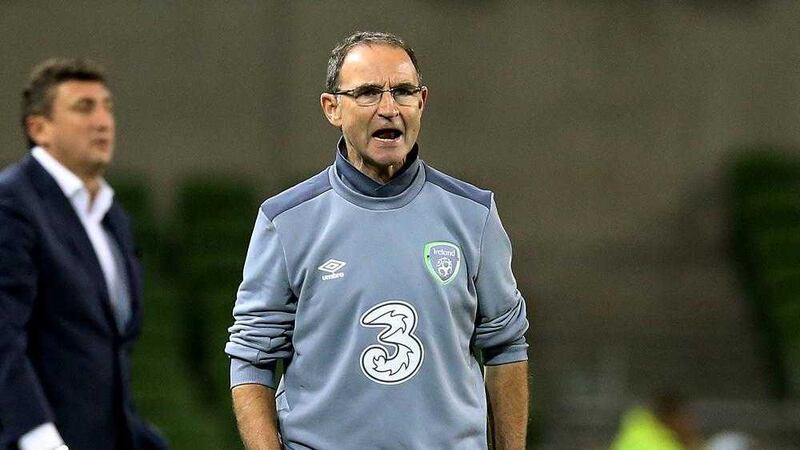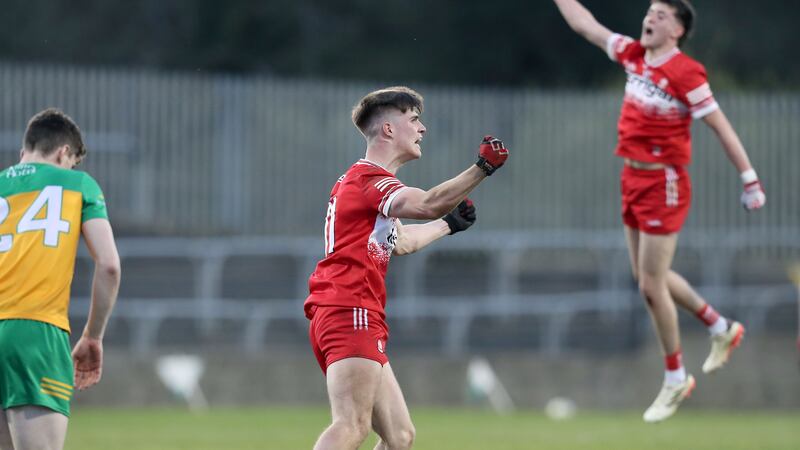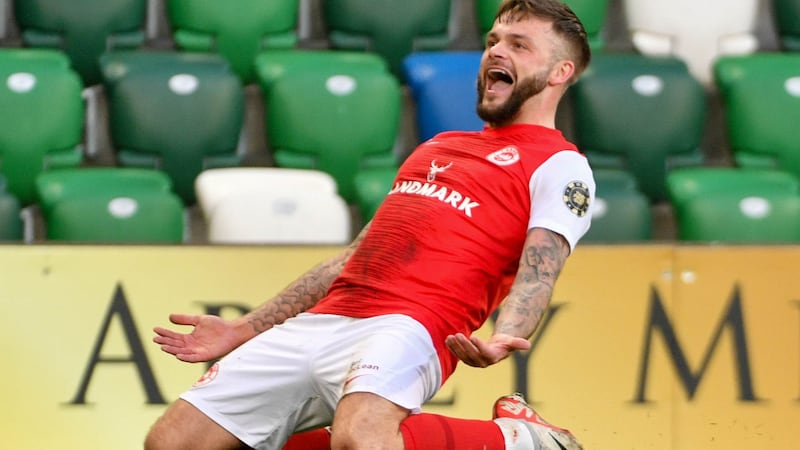AS A pundit, Martin O’Neill added a lot of colour and humour to last year’s World Cup in Brazil. Every time he was on the ITV panel the Kilrea man stole the show.
He was funny – sometimes laugh-out-loud funny – engaging and opinionated. And when the world's media was fawning over Louis Van Gaal for changing Holland's tactics during the tournament to a hugely effective 3-5-2, O'Neill seemed genuinely exasperated.
O'Neill scoffed at the notion that Van Gaal had somehow invented 3-5-2. The Republic of Ireland manager reminded viewers he was playing 3-5-2 years ago at Celtic and at other clubs he'd managed. Had no-one heard of Bobby Petta and Didier Agathe?
You wonder what Martin O'Neill the pundit would think of this Republic of Ireland team. Despite the expansion of the Euro finals - going from 16 to 24 participants - the Republic were handed arguably the toughest group of the lot. It may have been labelled the Group of Death but as things have progressed Group D has been very forgiving towards the Irish.
When you cast an eye over Ireland’s performances in Group D it is astonishing they’re still in contention of securing a place at next summer’s European Championships in France.
In Georgia last September, O'Neill might have got his competitive debut with the Republic off to a winning start thanks to two pieces of magic from Aiden McGeady - but the overall performance was poor.
Apart from a 20-minute spell in the second half against a Germany side, who were still sobering up from their World Cup triumph in Brazil a few months earlier, the Irish were fortunate to grab a late draw in Gelsenkirchen.
Arguably the lowest point in this stuttering campaign was the team's abject display against Scotland at Celtic Park. In many ways, this clash encapsulated the general disappointment with O'Neill's regime because in Glasgow you had two evenly matched teams. And yet, Scotland played the Irish off the park.
There was better structure to the Scots. Indeed, the crucial difference between the two sides was Gordon Strachan's players were brave enough to play through their midfield. Ireland's weren't. Charlie Mulgrew was particularly impressive that night in November.
The Republic were devoid of ideas, shovelling the ball out of defence on a regular basis, their strategy based on Jonathan Walters battling for second balls in the hope that something might bounce for them in Scotland's penalty area.
In March, the Irish showed great resilience to grab a late equaliser at home to Poland after a disappointing first half, and while they showed similar qualities at home to Scotland in the opening 45 minutes, they completely unravelled in the second half. When the Scots equalised early in the 49th minute in Dublin, the Irish were again devoid of an attacking strategy.
To compound Ireland's ineffectiveness in the final third, O'Neill withdrew the team's most creative player in Wes Hoolahan in the closing stages in a clear attempt to go more direct. Everyone lost a little bit of faith in O’Neill that night. And nobody cared to listen to the manager afterwards when he insisted the Republic were still in the qualification hunt.
Spool forward three months and the Irish are in a position they barely deserve to be in. Scotland's back-to-back defeats to Georgia and Germany and the banking of six points by Ireland, thanks to wins over Gibraltar and Georgia, has changed the landscape of Group D.
Even with a play-off berth tantalisingly near, the Martin O'Neill reign still hasn't caught fire. A mere 27,000 supporters turned up to an eerie Aviva Stadium on Monday night to watch their team struggle to overcome Georgia. Scheduling the game for a Monday night wouldn't have helped. Still, you'd imagine more than 27,000 would travel for such a crucial qualifier for the Republic of Ireland.
Martin O'Neill seemed the perfect appointment over two years ago. I expected more from his regime. I expected O'Neill to be jumping around the technical area a little more than he has done. He was regarded as a man who assembled teams that could punch above their weight. O'Neill's teams were always greater than the sum of their parts. There is very little evidence of this Irish team punching above their weight.
O'Neill deserves credit for making room in his starting line-up for a player of Hoolahan's creative ability when his predecessor Giovanni Trapattoni didn't. And the manager can do nothing about Robbie Keane's birth certificate or Shane Long's erratic finishing in front of goal.
Qualification football has never been the most inspiring spectacle but the Republic are particularly difficult to watch. And it’s been that way for quite some time. Trapattoni’s style of play was bordering on dysfunctional and yet he still managed to guide the Irish to the last European Championships.
Of course, O’Neill doesn’t have an embarrassment of riches, but neither do Scotland. The Scots, under Strachan, have been greater than the sum of their parts.
For far too long, the Republic of Ireland have lacked vision, an identity, a definitive style of play. The ‘gutsy Irish’ tag, the long balls, the extended periods of rudderless football grates after a while.
Trapattoni used to regularly lecture reporters on the importance of the result and if we wanted to see a show he urged us all to go to the Opera. Even when the Irish reached Euro 2012 under the Italian’s guidance, the football they played in Poland was terrible and the results disastrous.
Three years on, and with qualification to another major finals close, there is no let-up. The football is still miserable and it sometimes makes you wonder where's the joy in watching successive Irish teams over the last 10 years.
It's one dour struggle after another...








